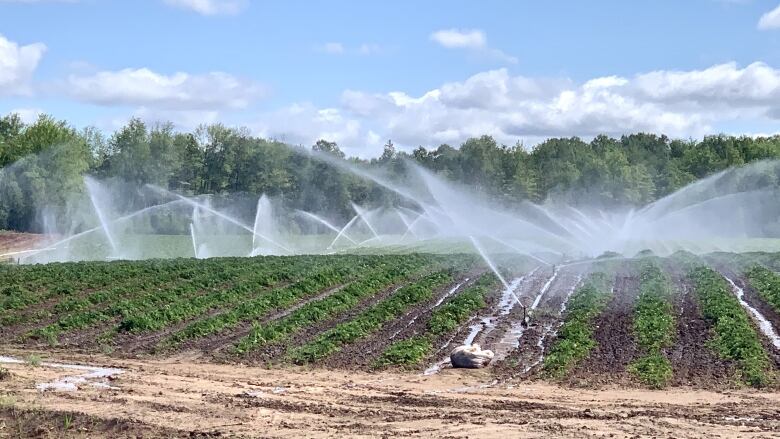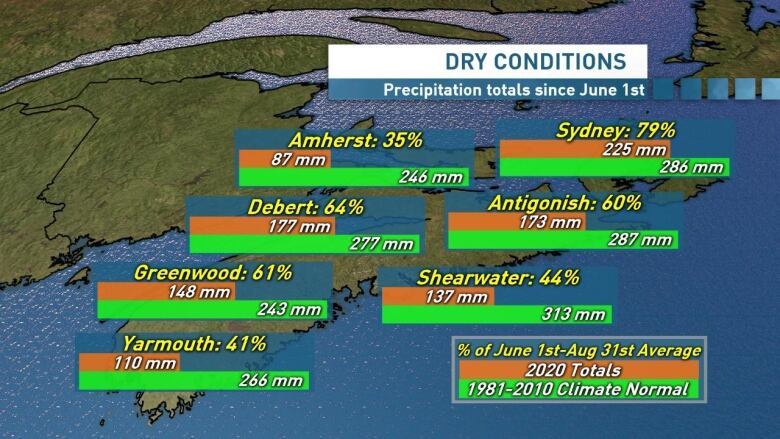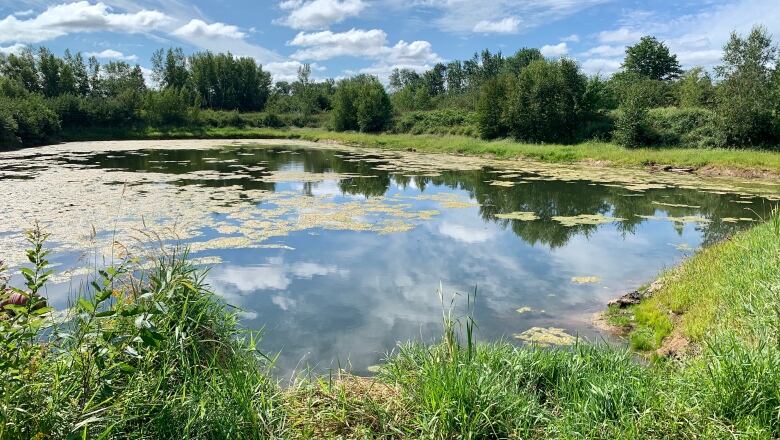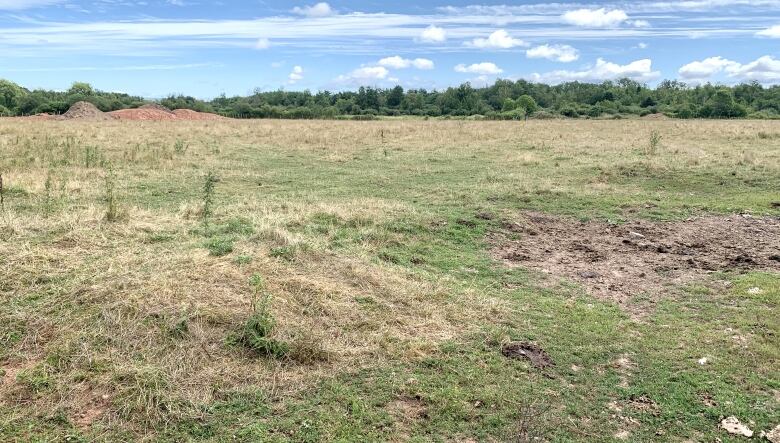Annapolis Valley farmers scrambling for water during dry summer
Heat, drought making it hard to grow crops and feed livestock

Drought:it's a dirty word in a farmer's world.
Unfortunately, it's a reality this summer in Nova Scotia that has left some farmers scrambling to find water for their crops and livestock.
"This year it just seems like the heat has been much more intense," said Charles Keddy, who has been farming in Lakeville, N.S.for more than 40years.
"We've had a lot of days with the humidex factored in, it's been in the mid to high 30 degrees and it's difficult to keep crops growing under those conditions."
'One of the driest summers ever'
Heat is one thing, but a lack of rain makes it even worse.

Keddy and other farmers are sharing irrigation ponds, some of which have dried up.
It's been a laborious effort to refill those ponds by assembling and reassembling thousands of metres of irrigation pipes from pond to pond in order for fields to get the water Mother Nature is not providing.
"Now we are having to go farther afield to try and find water to fill ponds back up," said Keddy, who uses sprinkler systems as well as drip hose pipes. "It gets very expensive if you have to move water once but it's really expensive if you have to do it two or three times."

CBCmeteorologist Ryan Snoddon says there was only one day in early Julywhere there has been any significant rainfall in the last three months in Kings County.
Keddy's crops are relatively healthy so far because they have been irrigating regularly. But without any rain in the near future, they may run out of water altogether.
"As soon as we are done planting in the spring we set up and we have our irrigation ready to go because there is always a dry time," said Keddy. "But it generally doesn't go on for four or five weeks at a time or in our case even more."
Keeping crops watered isn't the only concern for farmers.

In many instances livestock have been moved out of pasture land because grassland in the fields have been burned out by the blazing sun.
"I'd say this is one of the driest summers ever because we just haven't had any rain," said Wayne Baxter of Baxter's Cattle Company in Coldbrook. "The ground is so dry it's just cracking and nothing grows, especially grass, when it's this dry."
Baxter now has 160 head of cattle at his feedlot instead of out to pasture. At the feedlot they're being fed hay and have a water source, something that had dried up in the pasture land.
"It means extra work and extra cost, it all goes hand in hand," said Baxter. "We'll make out but we might have to buy a lot more hay, that's if there's hay to buy."
Baxter says he wouldn't be surprised if there is a shortage of hay. The hot, dry weather has reduced the amount of hay grown this summer and farmers may run out of it next spring.
MORE TOP STORIES












_(720p).jpg)


 OFFICIAL HD MUSIC VIDEO.jpg)
.jpg)



























































































